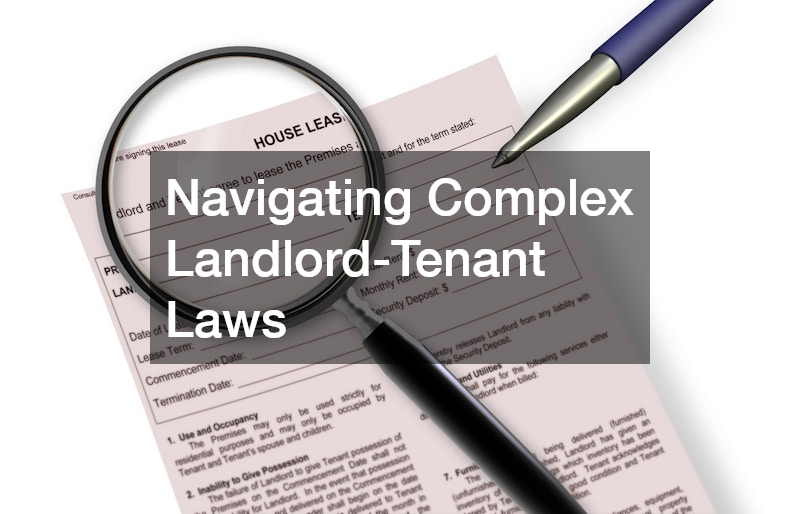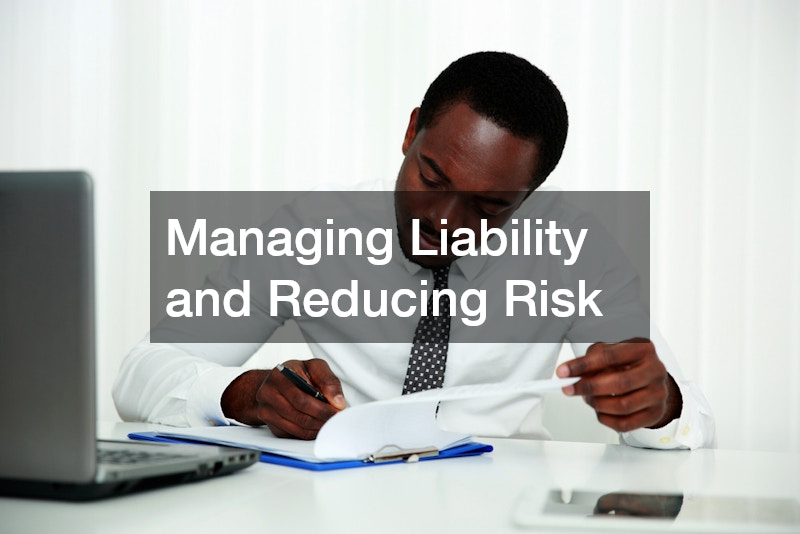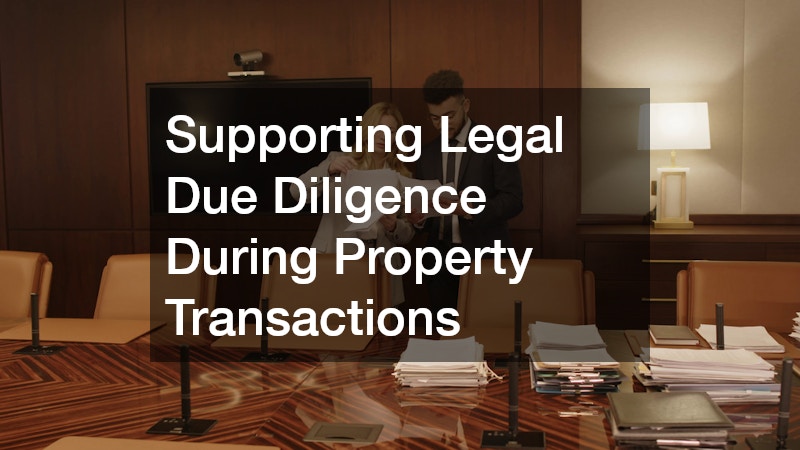Managing rental or investment properties comes with a host of responsibilities, challenges, and legal nuances. Whether you’re an individual landlord managing a single unit or a real estate investor with a portfolio of properties, navigating the complex web of tenant rights, lease agreements, eviction processes, zoning laws, and property maintenance standards can be daunting. A property management attorney serves as a valuable ally in protecting your interests, minimizing legal risks, and ensuring compliance with all applicable laws and regulations.
Property owners often focus on the day-to-day operations of maintaining their real estate investments but neglect the critical legal side of property management. Issues such as tenant disputes, code violations, liability concerns, and lease enforcement can quickly escalate if not properly handled. That’s where a property management attorney steps in. They not only understand landlord-tenant laws but are also adept at crafting leases, pursuing evictions, handling litigation, and advising on local ordinances and state statutes.
Moreover, today’s legal landscape for property owners can intersect with broader legal challenges, such as criminal matters, immigration law, or even bankruptcy. Understanding these intersections—like how a petty theft charge by a tenant may affect lease enforcement or how family immigration lawyer concerns may factor into housing stability—can give landlords a strategic advantage. Engaging with a knowledgeable legal partner can prevent costly mistakes and enhance the profitability and sustainability of your real estate endeavors.
This article explores ten key reasons why hiring a property management attorney is a wise decision for property owners and managers. Each section will detail the specific benefits and illustrate how legal counsel can serve as both a protective and proactive force in your real estate strategy.

Navigating Complex Landlord-Tenant Laws
Landlord-tenant laws vary by state, city, and sometimes even by municipality, making it essential to have a legal professional who understands the specific regulations in your area. A property management attorney ensures that you’re not only complying with the letter of the law but also protecting your interests when disputes arise.
For example, laws governing security deposits, notice periods for eviction, and maintenance responsibilities differ widely. Violating these rules can result in legal action or fines. A property management attorney can draft leases that are legally sound, enforceable, and tailored to your unique property situation. This is especially crucial if you own multiple properties in different jurisdictions.
They also keep you updated on changes in legislation that may affect your rental agreements or tenant interactions. With frequent updates to housing codes and landlord obligations, staying legally compliant is not a one-time event—it’s an ongoing process. An attorney helps you adjust your policies and documents accordingly.
Additionally, if a tenant brings a legal claim against you or files a complaint with a housing authority, your attorney will be prepared to respond appropriately. They may also collaborate with professionals in related fields, such as a criminal defense attorney in cases where a tenant has a petty theft charge that could affect the safety or well-being of the community.
Having legal counsel ensures you maintain both a lawful and professional standard in managing your property.
Crafting and Enforcing Legally Sound Lease Agreements
A well-drafted lease agreement is your first line of defense against legal disputes. Many landlords use generic templates found online, unaware that these documents may not reflect local laws or specific needs. A property management attorney customizes your lease to protect your investment and clarify both landlord and tenant responsibilities.
These custom leases cover crucial elements such as rent collection, property maintenance, entry notices, subleasing rules, and penalties for lease violations. They also include legally compliant clauses regarding eviction, renewal terms, and deposit conditions. A lease tailored by an attorney minimizes the likelihood of disputes and provides a strong foundation for enforcement.
When issues do arise—such as a tenant breaching lease terms—your attorney can initiate legal action on your behalf, whether it’s through a formal warning, mediation, or eviction proceedings. Their involvement ensures that every step you take is legally sound and documented properly.
In more complex situations, your attorney may help mediate disputes that arise during or after the lease term. If your property is part of a larger community issue, such as class action mediation over building defects, your legal counsel ensures that your rights as a landlord are represented.
Involving a property management attorney from the start empowers you to manage your properties with confidence and legal clarity.
Handling Evictions Properly and Legally
Evictions are one of the most legally sensitive actions a landlord can undertake. Improper eviction practices can result in countersuits, fines, or forced reinstatement of the tenant. A property management attorney ensures that the entire process—from issuing notice to regaining possession—is executed in strict accordance with the law.
Each jurisdiction has specific rules about how and when a tenant can be evicted. These rules often require detailed documentation, formal notice periods, and court appearances. An experienced attorney ensures that your actions are justified, appropriately documented, and timely.
If a tenant contests the eviction, your attorney can represent you in court, presenting your evidence and arguing your case. Their courtroom experience and knowledge of local statutes significantly increase your chances of a favorable outcome.
Some evictions may be tied to criminal activity on the property, in which case your attorney may coordinate with a bail bondsman or criminal defense attorney to ensure the eviction is handled safely and legally. These intersections highlight the complexity of property law and why legal expertise is invaluable.
By following a legally sound eviction process, you reduce the risk of legal backlash and protect your investment.

Managing Liability and Reducing Risk
Property ownership inherently comes with liability risks—from tenant injuries to property damage claims. A property management attorney helps you identify potential liabilities and implement safeguards to reduce exposure.
They review your property for compliance with safety codes and help you establish policies that minimize risk. For instance, if a tenant slips on an icy walkway, having proper maintenance protocols in place (and documented) can be a strong defense in court. Your attorney ensures these protocols are legally sufficient and consistently enforced.
In the event of a claim, your attorney will guide you through insurance coverage, negotiation, and, if necessary, litigation. They work with other legal professionals as needed, such as a criminal defense attorney if a criminal investigation results from an incident on your property.
Moreover, if you operate multiple rental properties or own a larger complex, the risk increases. Legal counsel can advise on whether to structure your holdings under LLCs or trusts, limiting your personal exposure.
Reducing risk is not just about avoiding court—it’s about proactive planning. With an attorney on your team, you can confidently navigate liability issues and protect your assets.
Responding to Tenant Complaints and Legal Threats
Tenant complaints can range from noise issues to allegations of discrimination. Some complaints may escalate into legal threats or formal complaints to housing authorities. A property management attorney provides timely and appropriate responses that protect your reputation and prevent escalation.
Your attorney will help you establish a formal process for receiving and documenting tenant complaints. This documentation becomes essential if the issue goes to court or if you’re accused of not addressing problems in a timely or adequate manner.
When a tenant threatens legal action, your attorney evaluates the situation and advises you on the best response. They may also represent you in negotiations or hearings. In more complex cases—such as those involving immigration concerns where a tenant may be working with a family immigration lawyer, your attorney ensures that your responses are lawful and non-discriminatory.
Having legal guidance allows you to respond to tenant issues with authority and professionalism, avoiding reactive decisions that could worsen the situation.
Navigating Bankruptcy and Financial Disputes
Tenants experiencing financial distress may declare bankruptcy, complicating rent collection and eviction efforts. A property management attorney with knowledge of bankruptcy law can help you navigate these situations efficiently.
When a tenant files for bankruptcy, automatic stays often prevent landlords from evicting the tenant or collecting back rent. Your attorney helps you file the appropriate motions in bankruptcy court to lift these stays or claim what you’re owed through the bankruptcy process.
They also assist in structuring your leases and payment policies in ways that reduce exposure to non-payment. For example, including specific clauses that protect your interests in the event of tenant insolvency can be critical.
In some cases, you may need to consult a bankruptcy lawyer to coordinate efforts if the matter becomes highly complex. Your property management attorney will ensure that your legal strategy is aligned with broader financial recovery goals.
Understanding how bankruptcy impacts your cash flow and legal rights is essential to maintaining profitable property management operations.

Supporting Legal Due Diligence During Property Transactions
Buying or selling rental properties involves numerous legal steps, from reviewing titles to assessing existing leases. A property management attorney ensures that your due diligence is thorough and legally compliant.
They review all contracts, disclosures, and inspection reports to identify potential legal red flags. If you’re acquiring a property with existing tenants, your attorney will examine current lease agreements for enforceability and compliance with local laws.
Legal counsel is also crucial in negotiating purchase agreements and ensuring that you’re not inheriting unresolved tenant disputes or code violations. They coordinate with title companies, inspectors, and even class action mediation professionals if broader litigation is involved.
During property sales, your attorney ensures that all obligations to tenants are fulfilled and that documents like estoppel certificates are correctly prepared and executed.
Having legal oversight throughout the transaction process protects you from costly surprises and strengthens your position in negotiations.
Ensuring Compliance with Local Ordinances and Housing Codes
Every municipality has its own set of housing codes and property management regulations. From occupancy limits to fire safety rules, failing to comply can lead to fines, lawsuits, or license revocation. A property management attorney keeps you compliant and prepared.
They help you interpret and apply local ordinances to your properties. This includes zoning laws, rent control regulations, building codes, and health standards. Your attorney will also represent you if a code enforcement officer issues a violation.
If a violation relates to a criminal matter, such as a petty theft charge occurring on your property, they can coordinate with a bail bondsmen or criminal defense attorney as needed.
Regular legal checkups and audits by your attorney help you stay ahead of issues before they become serious problems. This proactive approach is especially important if you manage multiple units or short-term rentals, which are often subject to more scrutiny.
Advising on Property-Related Family Legal Matters
Legal matters involving family disputes can intersect with property management, particularly when properties are co-owned or subject to divorce settlements. A property management attorney can guide you through these situations with minimal disruption.
In cases of shared ownership or inherited property, your attorney helps draft agreements that clarify responsibilities and legal ownership. If a co-owner goes through a divorce, working with divorce lawyers for men or other family law professionals may be necessary to resolve who retains property rights or rental income.
Your attorney can also assist in cases where child custody laws impact tenancy, for example, if a parent must relocate due to a custody agreement and needs to break a lease early. Clear guidance from your attorney ensures compliance while maintaining fairness and legal soundness.
Real estate entanglements often complicate family legal matters, but having a knowledgeable property attorney involved streamlines the process and safeguards your rights.

Providing Access to a Network of Legal Experts
Property management attorneys often work alongside other legal professionals, offering you access to a broader network of expertise. Whether you need a criminal defense attorney, a family immigration lawyer, or even someone to help with bail bond services, your attorney can refer you to vetted professionals.
For instance, if a tenant is arrested and a bail bondsman is involved, your attorney ensures the proper legal steps are followed in terms of lease enforcement. Or if a tenant’s legal status changes due to immigration proceedings, coordination with a family immigration lawyer ensures compliance with housing laws and fair treatment.
This extended network is especially useful when property issues intersect with broader legal areas. Your property management attorney becomes the central point of contact who can coordinate complex matters across multiple legal domains.
The Bottom Line: Legal Guidance Matters
Hiring a property management attorney is one of the smartest investments a landlord or property manager can make. The responsibilities of managing rental properties go far beyond collecting rent and fixing leaky faucets. Today’s property managers must navigate an increasingly complex legal landscape that intersects with everything from criminal law to family and immigration law. Understanding how elements like a petty theft charge or a tenant working with a bail bondsman may impact your liability and lease terms is crucial.
With a seasoned legal partner, you gain more than just legal protection—you gain a proactive advisor who helps you mitigate risk, resolve disputes, and grow your investment confidently. Whether you’re facing class action mediation, consulting a bankruptcy lawyer, or working through sensitive issues involving child custody laws or divorce lawyers for men, your property management attorney acts as a legal quarterback to coordinate and guide your next steps.
In a world where a single oversight can result in legal headaches or financial loss, it pays to be prepared. Partnering with a property management attorney ensures that your rights are protected, your properties are compliant, and your business is built on a solid legal foundation. It’s not just about defense—it’s about strategic growth through smart legal planning.
